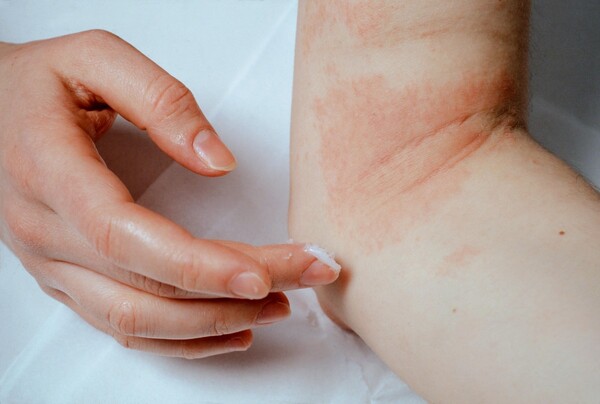Chung-Ang University Hospital said Tuesday that a research team led by Professor Kim Beom-joon of the Department of Dermatology and Lee Jung-ok of the Dermatological Science Class recently published a research paper titled “Human Placenta Hydrolysate (HPH) Suppresses Inflammatory Responses in TNF-α/IFN-γ-Stimulated HaCaT Cells and a DNCB Atopic Dermatitis (AD)-Like Mouse Model” on the effectiveness of human placenta extract in treating atopic dermatitis.

Human placenta hydrolysate (HPH) is made by separating and removing blood and hormones from the placenta, breaking down the remaining proteins into amino acids, and using it as an ingredient in injections, also known as placental injection. It contains various bioactive substances that reduce inflammation, improve fatigue, and heal wounds. Until now, however, it has not been confirmed to be effective in treating atopic dermatitis.

In this study, Professor Kim and colleagues used human keratinocytes (HaCaTs) and a mouse model of atopic dermatitis to test the effect of DNCD (2, 4-dinitrochlorobenzene) mixture to induce atopic dermatitis while simultaneously injecting HPH and dexamethasone (DEX), a conventional skin inflammation treatment, subcutaneously and intraperitoneally, respectively, to evaluate their efficacy in treating atopic dermatitis.
The results showed that the injection of HPH significantly reduced the production of reactive oxygen species (ROS) in human keratinocytes (HaCaT) and suppressed oxidative stress.
In a rat model of atopic dermatitis injected with HPH, the researchers also found that the concentration of IL-4 and IgE, key cytokines in atopic dermatitis, decreased by 60 percent and 27 percent in the blood, and that macrophage infiltration and epidermal thickness decreased, improving atopic skin lesions.
The researchers concluded that HPH injections effectively inhibit the progression of atopic dermatitis and can be a helpful treatment for atopic dermatitis-like skin diseases.
“We look forward to studying whether it can be applied to patients with atopic dermatitis through full-scale clinical studies after laboratory studies and animal experiments in the future,” Professor Kim said. “We believe that HPH injections can be an option for treating atopic dermatitis when expensive biologics are difficult to use or unsuitable for treatment.”
The paper was published in the latest issue of the Journal of Microbiology and Biotechnology, an SCIE-ranked international journal. The Korean Society for Microbiology and Biotechnology (KMB) also selected it as an outstanding paper.
Related articles
- Patient group, Danish Embassy call for allowing cross-dosing of drugs to treat severe atopic dermatitis
- Disallowing cross-dosing of severe atopic dermatitis drugs comes under parliamentary scrutiny
- Misconceptions, treatment strategies addressed for atopic dermatitis in health talk show
- Calls mount for cross-dosing of atopic dermatitis treatments to alleviate insurance burdens as Dupixent dominates market
- Doctors advocate for reimbursement of medication switching on World Atopic Dermatitis Day
- Dermatologists call for personalized treatment, subjective symptom focus for eczema
- LEO Pharma marks 1 year of Adtralza in Korea with long-term data showing gains in hard-to-treat atopic dermatitis

